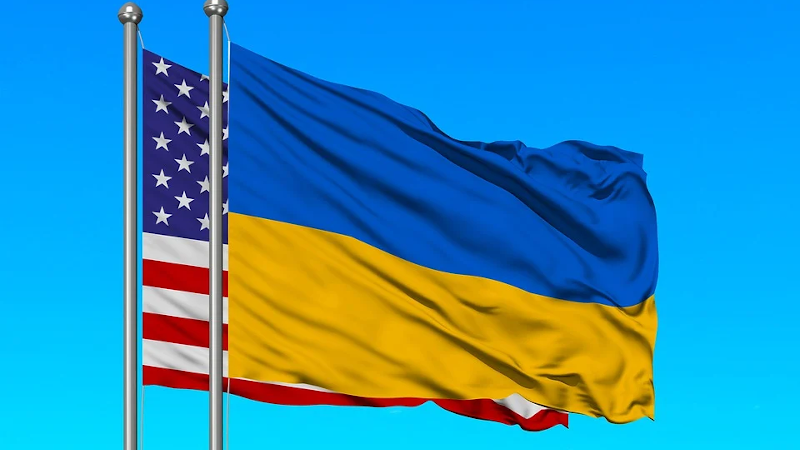
By Anita Powell
Ukraine faces wildly different prospects under a potential Trump or Harris presidency — but analysts say it's clear Kyiv is not waiting for November to let its fate be decided.
Still, in this ancient capital that is no stranger to the whims of foreign powers, analysts seem to view a possible re-run of a Donald Trump administration with ambivalence.
"There is a prevailing opinion that the return of Trump to the White House is not the best scenario for Ukraine," said Oleksii Melnyk, of the foreign relations and international security program at the Razumkov Center, a research institution. "Although there are also cautious opinions that everything may not be that bad."
Trump has said he'll swiftly end the war, although his running mate, vice presidential candidate JD Vance, once said he "doesn't really care" about Ukraine.
This makes a future Kamala Harris administration more of a wild card to this nation that knows Trump and President Joe Biden so well. Harris has met with Ukrainian President Volodymyr Zelenskyy and represented Biden at major transatlantic security summits. But on the campaign trail, Harris has only briefly spotlighted Ukraine — and how she differs from Trump.
Trump "encouraged [Russian President Vladimir] Putin to invade our allies, said Russia could, quote, do whatever the hell they want. Five days before Russia attacked Ukraine, I met with President Zelenskyy to warn him about Russia's plan to invade," she said at last month's Democratic National Convention. "I helped mobilize a global response — over 50 countries to defend against Putin's aggression. And as president, I will stand strong with Ukraine and our NATO allies."
Analysts say none of this is surprising. Harris is likely to follow Biden's "Support-Ukraine" playbook, they say, adding that Trump's broad foreign policy pronouncements remain as vague as ever, such as Trump's promise that he'll end the war in one day.
"It's not entirely clear how he'll do that," said Andrew Payne, a lecturer in foreign policy and security at City St. George's, University of London. "The fear, of course, is that he'll do it by simply abandoning Ukraine, cutting off funds and pressuring Zelenskyy into negotiations at a time when Putin would enjoy all of the bargaining leverage."
Ukraine shows renewed confidence
But, Payne said, the battlefield has shifted with Ukrainian forces' recent decision to strike across the border and take a bite of Russian territory.
This development is something that stuck with John Herbst, a former U.S. ambassador to Ukraine, on a recent visit there.
"Without a doubt, our chief impression was the energy and renewed confidence Ukraine's bold strike into Russia has provided the country's leadership and people,"Herbst wrote in the Atlantic Councillate last month. "They see the seizure of more than 460 square miles of Russian territory and the capture of hundreds of Russian soldiers as a clear victory, one that has changed the international conversation from a focus on peace talks or a cease-fire in place largely on Kremlin terms; they recognize that Russian President Vladimir Putin's notion of a cease-fire in place is now much less attractive to the Kremlin."
Biden still a factor
While analysts widely predict that Ukraine will neither seek to hold let alone succeed in holding this land permanently, it's a bargaining chip that will help Kyiv, whomever wins. And, Payne said, Biden could also put his hand on the scale at a pivotal stage.
"I wouldn't be expecting any shift in the U.S. position vis-a-vis Ukraine's military operations before November, but I would be watching between November and January — whatever the outcome — to see if there is a little bit more leash given to Kyiv," he said.
And he said Ukraine's leader has bolstered his relationships with European leaders and broadened his support.
Herbst also pointed to how a lame-duck Biden could give Kyiv a shot in the arm.
"Biden should also use his last months in office to reach out to Republican leaders in Congress to pass one last aid bill for Ukraine during his administration," he wrote.
Anna Chernikova contributed to this report from Kyiv.